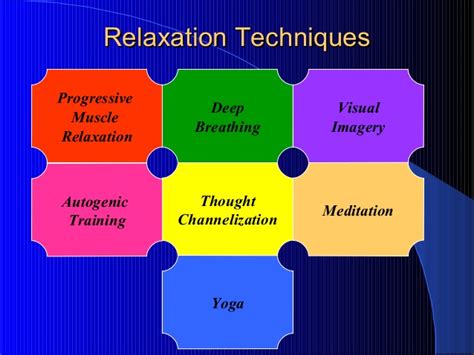How can men naturally optimize testosterone levels?

Testosterone, often hailed as the cornerstone of male vitality, plays a crucial role in more than just libido and muscle mass. It influences energy levels, mood, bone density, red blood cell production, and cognitive function. As men age, a gradual decline in testosterone levels is natural, but various modern lifestyle factors can accelerate this process or keep levels suboptimal even in younger men. Fortunately, many effective strategies exist to naturally optimize testosterone, focusing on holistic health rather than synthetic interventions.
Understanding Testosterone and Its Importance
Before diving into optimization techniques, it’s vital to understand why healthy testosterone levels are so critical. Beyond its well-known roles in sexual function and physical strength, adequate testosterone contributes significantly to mental clarity, emotional stability, and metabolic health. Low testosterone (low T) can manifest as fatigue, reduced sex drive, difficulty building muscle, increased body fat, mood swings, and even decreased bone density. The good news is that many of these issues can be addressed by adopting specific natural habits.

Dietary Foundations for Testosterone Production
What you eat forms the bedrock of your hormonal health. A diet rich in whole foods and essential nutrients is paramount for supporting testosterone synthesis.
Prioritize Healthy Fats
Contrary to outdated beliefs, healthy fats are crucial for hormone production. Cholesterol, derived from dietary fats, is a precursor to testosterone. Incorporate sources like avocados, nuts, seeds, olive oil, fatty fish (salmon, mackerel), and coconut oil into your diet.
Adequate Protein Intake
Protein is essential for muscle growth and repair, which indirectly supports testosterone levels, especially in conjunction with resistance training. Aim for lean protein sources such as chicken, turkey, lean beef, eggs, and legumes.
Complex Carbohydrates
While often debated, complex carbohydrates provide energy for workouts and help regulate cortisol levels. Choose whole grains, fruits, and vegetables to maintain stable blood sugar and support overall endocrine function.
Key Micronutrients
- Zinc: A powerful mineral directly involved in testosterone production. Oysters, red meat, poultry, beans, and nuts are excellent sources.
- Vitamin D: Often called the “sunshine vitamin,” Vitamin D functions as a steroid hormone in the body and has been strongly linked to testosterone levels. Aim for sensible sun exposure or supplement if necessary, ideally with D3.
- Magnesium: Contributes to free testosterone levels by reducing the binding of testosterone to sex hormone-binding globulin (SHBG). Green leafy vegetables, nuts, seeds, and dark chocolate are good sources.
- Vitamin K2: Emerging research suggests K2 may play a role in testosterone production and overall hormonal health.

Optimize Your Exercise Regimen
Physical activity is a powerful testosterone booster, but the type and intensity matter.
Strength Training is King
Resistance training, particularly compound movements like squats, deadlifts, bench presses, and rows, has been shown to significantly increase acute and chronic testosterone levels. Focus on heavy lifting with proper form and progressive overload.
Incorporate High-Intensity Interval Training (HIIT)
Short bursts of intense exercise followed by brief recovery periods can also stimulate testosterone production. However, balance is key; excessive, prolonged cardio can sometimes have the opposite effect.
Avoid Overtraining
While exercise is beneficial, pushing your body too hard without adequate recovery can elevate cortisol (a stress hormone) and suppress testosterone. Listen to your body and ensure sufficient rest days.

Prioritize Quality Sleep
Sleep is arguably one of the most underrated factors in hormone regulation. Most of your daily testosterone production occurs during sleep.
Aim for 7-9 Hours
Consistent, high-quality sleep (7-9 hours per night) is crucial. Studies show that even a week of sleep restriction can significantly lower testosterone levels in healthy young men.
Improve Sleep Hygiene
Create a conducive sleep environment: dark, quiet, and cool. Avoid screens before bed, limit caffeine and alcohol in the evening, and maintain a consistent sleep schedule.
Manage Stress Effectively
Chronic stress is a testosterone killer. When you’re stressed, your body produces cortisol. High cortisol levels can directly inhibit testosterone synthesis and signaling.
Practice Stress Reduction Techniques
Integrate practices like meditation, deep breathing exercises, yoga, spending time in nature, or engaging in hobbies into your daily routine. Prioritize relaxation and mental well-being.

Other Lifestyle Factors
- Maintain a Healthy Weight: Obesity, especially abdominal fat, increases the conversion of testosterone to estrogen via an enzyme called aromatase. Losing excess weight can significantly improve testosterone levels.
- Limit Alcohol Consumption: Excessive alcohol intake can interfere with the endocrine system and impair testosterone production. Moderate consumption is generally acceptable, but heavy drinking should be avoided.
- Avoid Endocrine Disruptors: Be mindful of exposure to chemicals like phthalates and BPA found in plastics, pesticides, and personal care products, as they can mimic hormones and disrupt natural balance.
- Consider Herbal Support (with caution): Certain herbs like Ashwagandha, Fenugreek, and Tongkat Ali have shown promise in some studies for supporting testosterone, but always consult a healthcare professional before adding supplements.

Conclusion
Optimizing testosterone naturally is not about finding a magic pill; it’s about adopting a holistic approach to your health. By making informed choices about your diet, committing to a smart exercise regimen, prioritizing quality sleep, effectively managing stress, and being mindful of other lifestyle factors, men can significantly improve their testosterone levels and experience a cascade of benefits, from enhanced energy and mood to improved strength and overall vitality. Consistency and patience are key, and consulting with a healthcare professional is always recommended for personalized advice.









